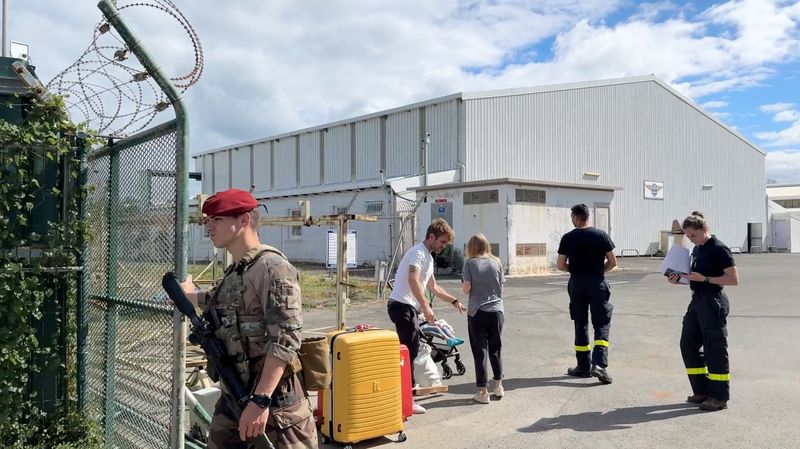PARIS (Reuters) - New Caledonia's international airport will remain closed until at least next Sunday, its operator said, nearly two weeks after rioting erupted on the French-ruled Pacific island over a contested electoral reform.
Seven people have died in the riots, in which cars and businesses have been torched and shops looted.
French President Emmanuel Macron, who visited the island on Thursday to try and ease tensions, has hit pause on the reform, but fallen short of pro-independence parties' demands that it be shelved altogether.
Hitting pause was "a gesture of appeasement", Macron said in an interview published by Le Parisien newspaper. "But I will never make a decision to postpone or suspend under the pressure of violence," he said.
If pro and anti-independence parties on the island fail to reach a broad deal on the island's future, Macron would either call a special congress of the two houses of parliament, as planned, to ratify the electoral reform. Or, he said, he could call a referendum.
Macron also urged pro-independence protesters, who have said they will remain mobilised, to lift their barricades.
"There is a political background to this violence," Macron said, but that's not the case for many rioters, he said.
"What do the looting of a supermarket, burning of a school, ransoming people ... have to do with the war for independence? Nothing! This is high banditry," he told Le Parisien.
France annexed New Caledonia in 1853 and gave the colony the status of overseas territory in 1946. It is the world's No. 3 nickel miner but the sector is in crisis and one in five residents live below the poverty threshold.

Electoral rolls were frozen in 1998 under the Noumea Accord, which ended a decade of violence and established a pathway to gradual autonomy.
The protesters fear the electoral reform would dilute the votes of indigenous Kanaks, who make up 40% of the island's population of 270,000 people.